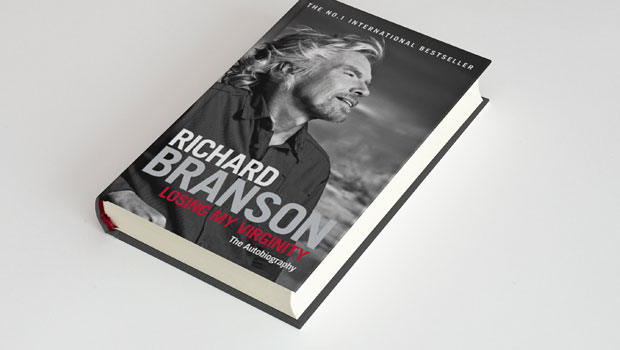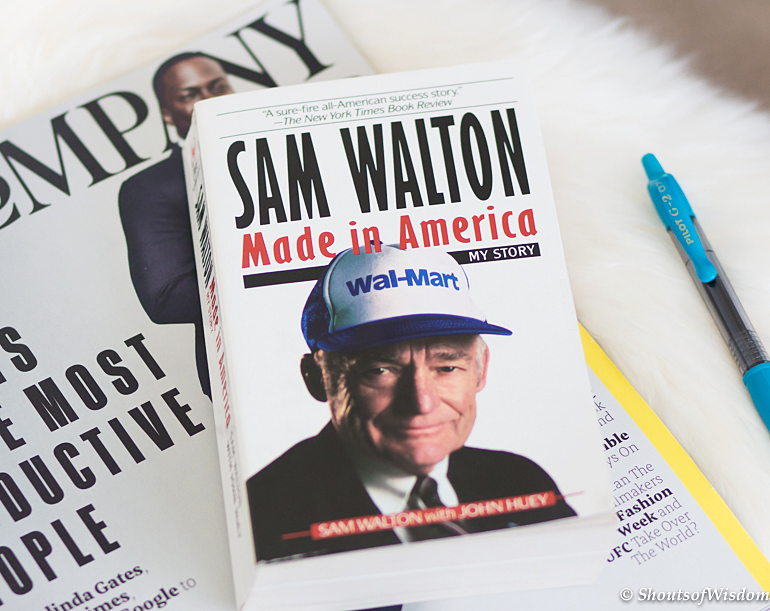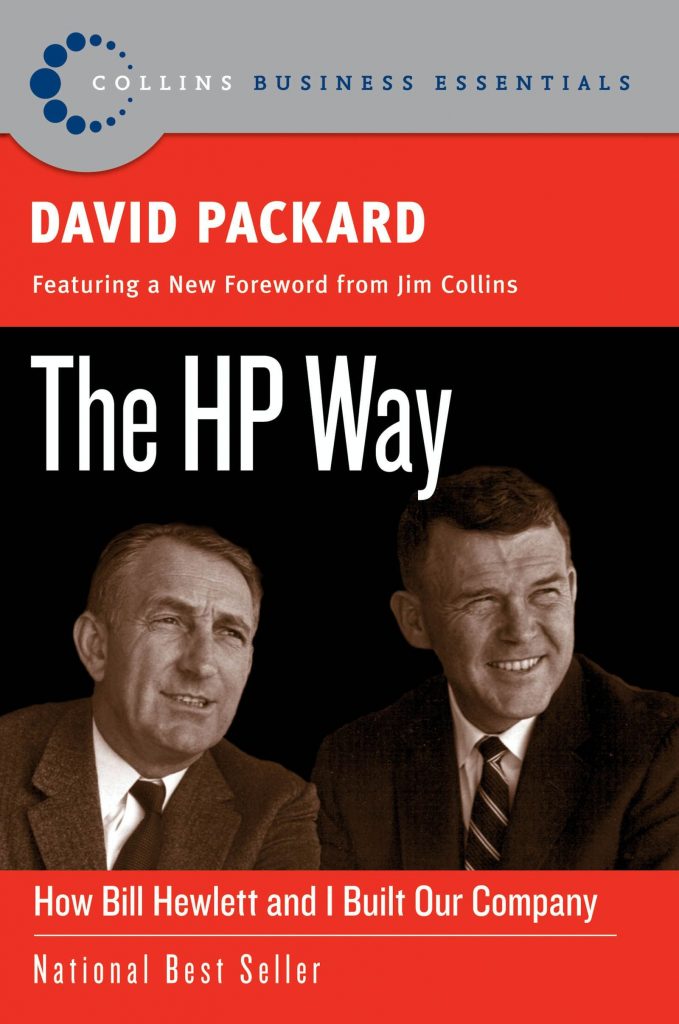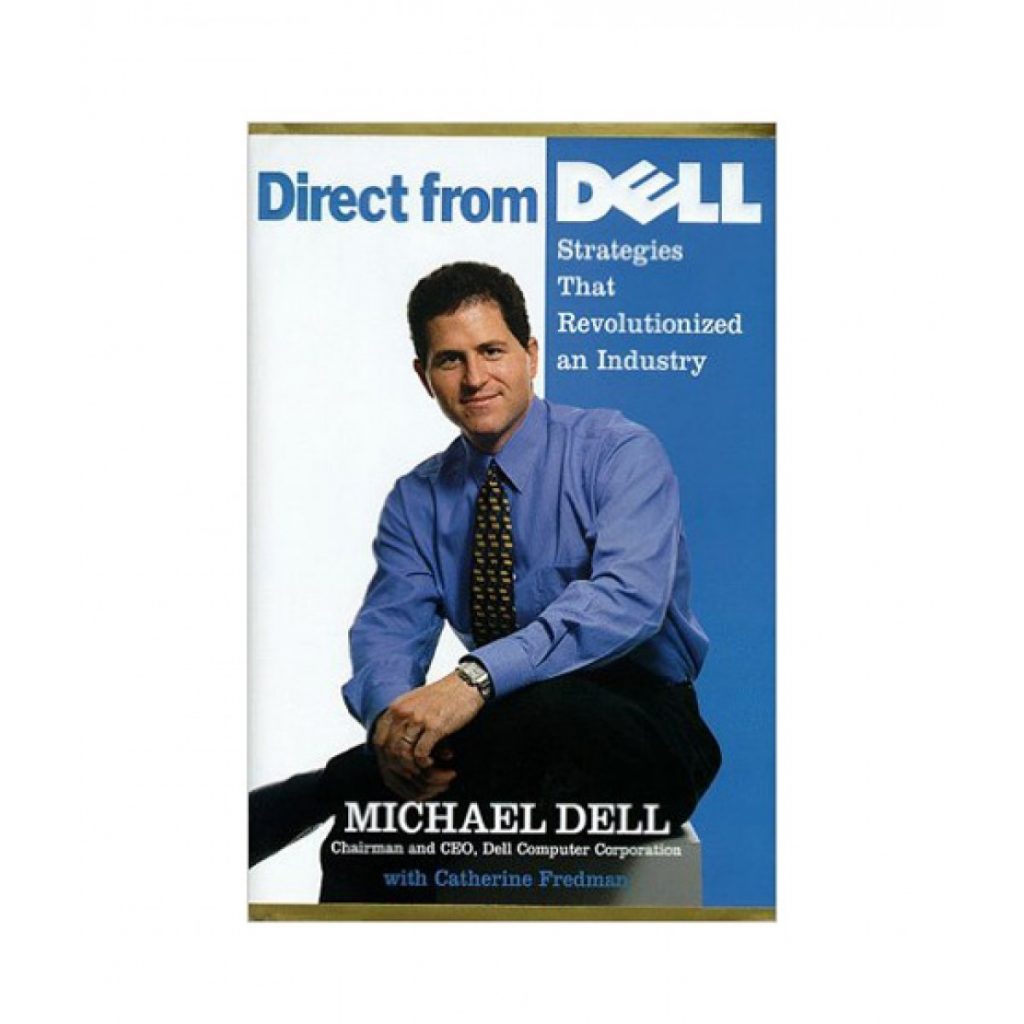Entrepreneur Stories
Autobiographies By Entrepreneurs You Should Read For Inspiration

There are times in life when you get so bogged down by the pressures of the world, you can’t think beyond the fog. At times like these, it’s the entrepreneurs you have idolized all your life who inspire you to do the unexpected. Every great man at the top of the food chain, at some point or other, faced downfall. When you feel like you are completely down and out, reading autobiographies by those who made it big in the world help in finding the much needed silver lining. Here is our list of books you should definitely read when you need the push to do better!
1. Losing My Virginity: How I Survived, Had Fun, and Made a Fortune Doing Business My Way (Richard Branson)
Richard Branson, known best for founding the extremely famous Virgin Atlantic, is perhaps one of the most successful entrepreneurs in the world right now. Not only did he found one of the most widely used airlines, he also created a host of other businesses (Virgin Cola, Virgin Records and V2.) While his life may seem picture perfect right now, Branson went through his fair share of ups and downs. In his autobiography, Branson gets completely candid and talks about how, despite his advisors telling him not to start so many businesses, he adopted the “Oh screw it, let’s do it” policy. A tell all about the journey of his life to the top, Losing My Virginity: How I Survived, Had Fun & Made A Fortune Doing Business My Way is a definite must read!

Pictiure credits: slideshare.net
2. Made In America (Sam Walton)
Sam Walton, one of the co founders of Walmart, built the largest retail store in the United States from scratch through sheer hard work and effort. In his book Made In America, Walton talks about how he barely had any seed money, an idea and the dream to create something people all over the world could use. With only one store in Arkansas, Walton and his partner (John Huey,) worked through their mistakes with commendable ease and brought to life a retail store which quite literally changed the way people shopped!

Picture credits: selar.co
3. Built From Scratch: How a Couple of Regular Guys Grew the Home Depot from Nothing to $ 30 Billion (Bernie Marcus and Arthur Blank)
From being fired, to building a billion dollar worth company, Arthur Blank and Bernie Marcus have quite an inspiring story to tell. In their book Built From Scratch, Bernie and Arthur map out their entire journey and talk about how being fired from your job is never a bad thing. The book also gives you the hope that even if something goes miserably wrong, you can always work on what you want to recreate your dream. Built with grit and determination, the story of how Home Depot came to be is one everyone will relate to even now!

Picture credits: edutech.com
4. Pour Your Heart Into It: How Starbucks Built a Company One Cup at a Time (Howard Schultz)
A lot can happen over a cup of coffee, especially if you pour your heart into it. Howard Schultz, the CEO of Starbucks (the largest coffee store in the world,) quite literally put all he had into creating this massive empire. In his inspiring book Pour Your Heart Into It, Schultz talks about he cracked the code to perfection: providing great customer service! This particular autobiography is a must read because not only does it outline Schultz’s recipe for success, it also talks about how the man faced his failures and all the techniques he learnt while making it to the top!

Picture credits: amazon.in
5. The HP Way: How Bill Hewlett and I Built Our Company (David Packard)
Friends from Stanford, Bill Hewlett and David Packard created HP when they realised there was a severe need for personal computers. A car garage doubled up as their office space and armed only with an idea, the duo gave life to one of the most sought after computers in the world today. The HP Way by David Packard talks about their journey from a garage, to how a coin toss decided the name of their company.

Picture credits: staples.com
6. Direct From Dell (Michael Dell)
Michael Dell, the founder of Dell, started his entrepreneurial journey in his dorm room, with seed money of less than $ 1,000. Dell grew from just selling computers, to manufacturing and distributing them. Today, it is one of the largest computer manufacturers in the world. In his book Direct From Dell, Michael Dell talks about what he learned during his journey and about how he overcame some of the toughest difficulties while growing.

Picture credits: goodreads.com
The top tens didn’t become the great people they are today because they got lucky. They put in a lot of time, effort and energy into making their dreams come true. If you think we missed out on any other inspiring autobiographies, comment and let us know!
Entrepreneur Stories
Zupee Bolsters Short-Video Play with Vertical TV Acquisition Under INR 40 Cr

Delhi NCR-based gaming startup Zupee has acquired Mumbai-based microdrama platform Vertical TV in a deal valued under INR 40 Cr. This move strengthens Zupee Studio, its short-video arm launched in September 2025, by integrating Vertical TV’s expertise in bite-sized dramas like romance and thrillers.
Facing challenges from India’s 2025 real-money gaming ban, Zupee valued at $1 Bn after raising $120 Mn has pivoted to non-gaming content, including recent layoffs of 40% of its workforce. The acquisition builds on its November 2025 purchase of Australian AI firm Nucanon for interactive storytelling, targeting its 200 Mn+ users with engaging, mobile-first formats.
This deal underscores the rising microdrama trend in India, helping Zupee diversify amid regulatory pressures and compete in the short-video space dominated by quick, shareable content for on-the-go audiences.
Videos
T.N. Seshan: The Fearless Reformer Who Redefined Indian Democracy

T.N. Seshan’s name stands tall in India’s history as the man who transformed the nation’s electoral system with extraordinary courage and integrity. Born in 1932 in Kerala, Seshan grew up with values of discipline, education, and service to the nation — virtues that shaped his illustrious journey. From his early brilliance at Madras Christian College to his advanced studies in public administration at Harvard University, Seshan’s path reflected rare determination and intellect. Joining the Indian Administrative Service in 1955, he built a reputation as a no‑nonsense officer committed to efficiency and honesty, serving in key roles such as Secretary of Defense and overseeing vital national programs.
As the Chief Election Commissioner of India in 1990, T.N. Seshan sparked a new era of electoral integrity. In a system once marred by corruption, violence, and malpractice, Seshan brought order, fear, and respect through his groundbreaking reforms. He introduced voter ID cards, imposed strict spending limits on campaigns, and insisted on transparency at every level of the election process. Despite criticism from political circles that labeled him dictatorial, his relentless pursuit of fairness empowered every citizen to vote fearlessly. Under his leadership, the Election Commission became a symbol of strength and integrity in Indian democracy.
Seshan’s passing in November 2019 marked the end of an era, but his message continues to resonate across generations. Leaders from every corner of the country mourned the loss of the man who restored faith in free and fair elections. His enduring legacy reminds us that true leadership lies not in wielding power, but in serving people with honesty, courage, and conviction. T.N. Seshan’s life remains a timeless inspiration a reminder that democracy thrives only when its citizens are vigilant, responsible, and fearless.
Entrepreneur Stories
Indian Man Quits JPMorgan, Takes 70% Pay Cut to Launch $6 Million Startup

Leaving behind a high-paying job at JPMorgan, an Indian entrepreneur embraced a 70% salary cut to pursue true purpose and passion in the startup world. Disenchanted with what he described as a “robotic” corporate routine, he sought meaningful work that made a real impact. This pivotal decision marked the beginning of his new journey, one focused on value creation rather than titles and corporate perks.
Powered by resilience and fresh perspective, the entrepreneur launched his own startup, prioritizing innovation and hands-on solutions. The road was challenging, but his vision resonated with the market: the startup quickly gained traction and raised $6 million—an impressive acknowledgement of its potential in a competitive landscape. Every hard lesson from early setbacks and bootstrapping paid off in real customer growth and investor confidence.
Today, his journey stands as an inspiring example for professionals seeking authentic success outside the corporate grind. By trading comfort for creative freedom, he grew a venture that solves important problems, generates jobs, and builds wealth beyond just salary. For ambitious founders, his story highlights the power of risk-taking, adaptability, and relentless focus on impact in India’s thriving startup ecosystem.













Georgevxj
March 5, 2025 at 1:37 am
Beginning in 1944, many WAAFs served beyond the home front, including in Europe after the intrusion of Normandy. There you’ll discover St Martin’s Cathedral, a 15th-century Gothic church and the Old Town Hall, home to the Bratislava City Museum. Nevertheless, the Allies advanced non-stop northward, wrecking through the Gustav Line and the Gothic Line. Department of War wraps up that just through a ground intrusion of the Japanese homeland will certainly the Allies be successful in winning the battle in the Pacific Theater. American infantryman Ira Eaker plans bombing offensive: American Ira Eaker, an infantryman throughout World War I, began training as a pilot in 1918. He won the Distinguished Flying Cross in 1929 for assisting set a globe flight endurance document. The American capture of a German submarine and the loss of Crimean city of Sevastopol to the Soviet Union are amongst the significant newspaper article of 1944. Summaries of these and other significant World War II occasions adhere to. Social network systems are popular among young Belgians to connect online and prepare meetups offline.
1 Free websites do not need any type of membership fees which entices many individuals to their systems. However, these systems might additionally have drawbacks, such as a greater prevalence of scammers, much less severe participants, and limited functions that can obstruct your capacity to connect meaningfully with possible companions. European males are brought in to certain ladies that reveal that they can enjoy with each other even when the children are being dull. There are greater than [url=https://www.flickr.com/photos/charming-date/7800190464/]CharmingDate[/url] 32 million energetic spa-goers. To complete your profile, there are much more concerns to answer about yourself. Reputable websites like SofiaDate, TheLuckyDate, BravoDate, LoveForHeart and JollyRomance are easy to use, often readily available as apps or mobile-friendly versions, attribute robust security measures, and most significantly, are inhabited by thousands of anxious European singles ready to attach. Subsequent problems will consist of the words Omaha and Overlord, leading Allied security to think Dawe is dripping knowledge concerning the D-Day intrusion. Eisenhower determined that Bradley’s First Army, with its three corps, would arrive on the Omaha and Utah beaches in the first wave of the invasion of Normandy. Open, just to three-putt two of the last three openings to lose by one shot to Bryson DeChambeau. Less than 2 months before the intended Allied intrusion of France, American and British warplanes soften German defenses on the Normandy shore.
Outnumbered two to one and with their backs to the Black Sea, the Germans tried to make a stand at Sevastopol. But in spite of an Italian armistice on September 8, the Germans proceeded to deal with on determinedly. The defend Italy continues: The Allies’ success in North Africa allowed them to attack Sicily in July 1943 and Italy in September. April 25: U.S. general George Patton produces a buzz when he indicates that the Allies have prepare for globe domination. U.S. General Dwight Eisenhower welcomes troops prior to D-Day: On June 5, 1944, General Dwight Eisenhower wrote a brief note. Nevertheless, groups of Romans grateful for an end to the Nazi line of work happily greeted the soldiers of U.S. May 3: Spain’s Fascist government under General Francisco Franco consents to stop supply shipments to Nazi Germany for a boost in oil deliveries from the Allies. The sequence dating approach permitted the family member date, otherwise the outright day, of any kind of given Predynastic Egypt website to be ascertained by examining the manages on pottery, basic form of the piece, and the stratigraphic layer it was found in. To search for a solitary lady from these countries, of course, it is most practical to look on a specialized, straightforward and legal Eastern European dating website.
If you’re seeking a European dating site that is tailored in the direction of locating enduring love, eHarmony is a great option. Popular for its online video attribute, Lovoo attract individuals trying to find a dynamic dating experience. The deep university in an individual you meet online, is constantly perplexing, as the minute you terminate a person cause you don’t like them, after that you discover an overall different individual, that when you are lugging a doubt of understanding him, you understand he is a completely different person, and all these feelings you can determine originates from experience since just how much individuals you see and communicate. To us, the standout feature of GoldenBrides is the fact that it has very in-depth profiles, so, when dating worldwide, you can figure out a great deal regarding the individual long previously sending out the very first message. Most various other features, consisting of sending out winks, suches as, public chats, access to photos and profiles, search, and, of program, assistance, are totally free to use. April 20: The Allies are finally able to convince “neutral” Turkey to quit providing the Axis with chrome for weapons and transportation production. The Allies contributed to Nazi Germany’s misapprehension through a number of ruses, consisting of the creation of a phantom military group that was stationed straight across the channel from Calais and was led by U.S.
Austinksg
June 26, 2025 at 8:55 pm
It’s hard not to get self-acutely aware, and also you might want to return and analyze each single thing you probably did to find a cause why it occurred. “What’s the most difficult factor you’ve ever performed? “What’s your favorite e book or movie? “What’s one of the best trip you’ve ever been on, and why? Sending something like “Hey†or “What’s up? Because I do know like when I’m swiping for shoppers, I’m looking at you and your mates and that i can’t inform which one you are and what if your pal is extra attractive than you might be, then you definitely don’t want to set yourself up for that. Remember that everyone right here is trying for someone to make an sincere connection with, so the much less time you waste on someone else’s, the extra time you’ll each have to seek for that special somebody. The need to misrepresent parts of your self could be interesting on-line, especially while you aren’t trying someone in the eye.
Dating generally is a daunting prospect. Before we dive into our record of tips on tips on how to make great connections on relationship websites, we thought we would start by speaking about some of the commonest struggles that people expertise with online courting. If you’re asking open-ended questions and the individual on the opposite finish of the chat is giving you nice answers, don’t simply transfer on to the next question. Sometimes it can be hard to differentiate between a real individual and a pretend account, but there are ways you may determine if the dating profile you’re talking to is fake. There are lots of people on-line relationship (although this may rely on where you’re situated), and there’s a pot for each lid. Typos happen, however chronic errors can be a turn-off for lots of people. Even when you don’t really feel like you might be a really talented conversationalist, asking the precise questions can keep issues flowing and point your conversation in fascinating directions. Asking open-ended questions is an effective way to begin an inspiring conversation, however if you are simply leaping from one to the subsequent and glossing over some main details that somebody is giving as much as you, then it’s going to change into fairly clear that you aren’t actually paying attention.
It’s also greatest to get to know each other extra over the telephone [url=https://latamdatescam.wordpress.com/2014/04/22/what-latamdate-does-to-protect-its-members-from-latamdate-scam-or-fraud/]latamdate scam[/url] before assembly in particular person. Any courting site ought to embody the business’s contact info, together with email, street tackle, and phone number. This allows time to establish belief earlier than exchanging contact details like your handle or telephone quantity. You will never know the kind of day she is having, so respect the time she is committing to the date and create convenience in order that she doesn’t have to suppose extra exhausting about going to the date. Don’t begin off assuming that your date is malicious or deceitful or intent on exploiting you Communicating that sort of prejudice will put off any sensible particular person. Mention one thing that caught your consideration on their profile or another kind of observation that establishes a connection or an overlap in interests. Bring your genuine self to your dating efforts, and you may be rewarded with a greater likelihood of an genuine connection. Dating apps have put involved singles at the information of your fingers, and you now have access to more individuals in much less time than ever before – with out even getting off the couch!
In some cases, relationships develop over an extended time period. Now that we’ve gone over some of the most typical frustrations and struggles with on-line dating, here is an inventory of some basic, useful ideas that will help you get essentially the most out of your time on Zoosk. If it is not related to the surfer, they’re not going to waste their valuable time. Don’t do it – if issues progress based mostly on these false pretenses, you’re going to be caught out in a lie when you meet in real life. Use chat rooms and other messaging choices to get to know somebody, and don’t rush into issues. We will get into honesty in the following tip, however it is best to completely deal with honesty when crafting your profile. Your first impression is crucial, so keep that in mind as you craft your relationship profile. The web Dating Sites make the process all easy and enjoyable for the seniors and there are success tales of seniors who have found true love from the web. Each time you swipe on somebody or send a message, there is an efficient probability that they simply simply won’t vibe together with your bio.
Carrolpkr
August 4, 2025 at 10:01 pm
In the event you do, then you might want to show your Russian match the way you dance. Find ways to get to dance together virtually. Make them chortle, and for certain, you will get their coronary heart too! Like the rest, know pace dating takes time to get good at and don’t put an excessive amount of stress on your self, Hoffman says. After all, they would wish to have fun like anyone else, but they make it possible for the time and sources on individuals who present curiosity in them don’t go wasted. Whether you are now online looking to your Russian love on a relationship site or at the moment in Russia for something else, discovering love ought to never be laborious. If you end up tongue-tied to say something explicit, you might be saved by the screen in case you are relationship on-line. You’re one in all them, after all, so logically there are others. Check to see if the particular person you’re occupied with is on other social networking sites like Facebook, do a web search to see if there are other data of the individual online, and if attainable use google image search to check the profile photographs.
Indeed your profile picture and different further photographs need to be enticing. Are you an animal lover, or do you may have a pet? Telling your match how you are taking care of your pet brings out the best in you. By sharing your travel experiences with your matches, it can solely take you on prime of the tons of of others that send your Russian match messages every single day. Nonetheless, do take notice that online courting is an especially aggressive subject. There are lots of types of online courting companies which are floating around the web world. There could be a hole in the language throughout this section. The Police have nationwide and native teams there to assault fraudsters. Russian girls are intellectuals, so that you don’t have to worry in regards to the language barrier for those who speak English. Don’t really feel bizarre about asking to chaperone, even in the event you watch the date take place from a distance. It is normal to wonder if courting has modified dramatically, or if you will remember how thus far. Carlson encourages fellow singles to give pace relationship a try. Carlson says she ended up matching with someone “very nice” on the pace dating occasion she went to. But lets’ face it- at the tip of the day, you need to fulfill that very particular someone just for [url=http://asiame1.blogspot.com/]asiame review[/url] you.
Meet them at a restaurant, and have an easy method to depart if you find something shady. But you additionally don’t must feign being busy. This may make your online dating a Russian girl extra interesting, and you may just have discovered the love of your life. The e-mail should be just to her, so she’s going to discover you further attention and that you just truly learn her profile. You may consider having a courting profile on Russian dating apps just out of boredom. Indian relationship apps could be infamous for things like this, so stand out from the gang by having an expert-looking profile in terms of your grammar. But on apps you could do so in an abbreviated method. One of the best ways to interact someone in a conversation is by listening as a lot as you speak (or kind?). If you are an extroverted person, then the easiest way to express yourself is by telling what you do outdoors. Instead, your dating associate will love you extra in case you are honest about your shortcomings and want to know more about one another. So in case you are the kind of person that fancies exhibiting his abs in most if not all on his dating profile, this can depict what kind of girls that can talk to you for a brief while or to these that may take you severely.
In that same report, 46% of individuals said their experiences using a dating app or website have been very or considerably destructive. The Clovis-First theory proposes that these people came from Siberia, where hunter-gatherer tribes lived. Russian women are intellectual individuals and are complete readers. On daily basis is Valentine’s day within the Russian woman’s heart. Russian ladies prefer it when men hear and just merely ask her how her day went. For positive, you haven’t anticipated this kind of gesture to be inherent to the Russian culture. If you’re a foreigner, one of the important Russian relationship rules is to brush up your knowledge of Russian culture and their literature. Do we’ve guidelines to follow with regards to the center? Surely John Lyly is aware of “all is fair in love and in struggle,†and the Russians have unwritten rules for it too. Still, Russians are naturally loving individuals. It can be simple to satisfy new folks around your campus. Who is aware of, you may simply meet your excellent match. Set reasonable expectations: Understand that discovering a compatible match could take time and persistence. You’re in control. You’ve obtained this, ladies, so concentrate on discovering the enjoyable and don’t let relationship rule your whole existence.
Hunerxyn
August 7, 2025 at 8:49 pm
Through in-depth evaluation and private reflections, the hosts present a roadmap for figuring out behaviors which will sign an unhealthy connection. Conversely, if you’re hoping (wishing/ ready) for a connection to convert into something more, it’s time so that you can make a transfer or transfer on. We’re so scarily (and sickeningly) near 2025; it’s time to cease floating via the yr on autopilot. In case you don’t know what you’re looking for, it’s no shock you haven’t discovered it but. She realized rather a lot about what she was searching for and the way to attract her splendid companion. In this article now we have managed 7 tips for singles who’re looking for online courting and good long term relationship. After assembly Brad at one among my singles events, I took over his on-line dating apps at the top of May and it’s now mid-August and he’s effectively on his approach! When assembly somebody new for the primary time, all the time meet in a effectively-lit public place the place there might be loads of different folks around. Just how do I improve my chance of meeting girls after I possess joined up with a internet courting webpage? For example, I periodically Google myself, and that i as soon as found a weird photo on a Malaysian or Indonesian webpage that had reprinted one of my articles.
A 2017 research published within the Journal of Marriage and Family found that couples who prioritized open communication and emotional support reported greater ranges of satisfaction and relationship longevity. Don’t fear when she introduces you even to her cousins and the extended household because they value households. After they married, they discovered an excellent larger adventure lay in retailer for them: “Being in our 60s, we joked that had we met earlier we might need had children and brought them up completely. All you must do is change one word in your bio every week or so. Therefore, it’s good to acknowledge the opposed impression it may have. Plus, it may take multiple meet-ups to make meaningful connections. In the event that they push the problem and need to talk to you right away, you could resolve that you’d moderately focus on things with them at that second, as an alternative of ready. The reason why Brad was so successful instantly is as a result of I made the entire course of rather more environment friendly for him.
Which is why we’ve enlisted certified courting coach and relationship expert Sera Bozza to make use of her famous ‘no bullshit approach’ to untangle the curliest of romantic conundrums. When you land a successful match and resolve to go on a primary date, you may as well use ChatGPT for dialog-starters and questions that may enable you get to know your date better. It must be something that describes you, something others will discover intriguing. That may be an insightful means to search out an area date. The Female Dating Strategy Podcast dedicates a number of episodes to navigating the virtual landscape, providing women tools to protect themselves and find meaningful connections on-line. You is perhaps holding onto connections for validation (hey, we’re all human), however it’s time to chop the cord. After months of hibernation, cuffing season, and approach too many “we should grab a drink sometime†messages that go nowhere, spring is the perfect time to detox your dating life.
These seven spring edits will enable you clear out these pen pals, get intentional, and make area for real connections (whatever that appears prefer to you!). Time to Marie Kondo the crap out of your dating technique-as a result of your inbox deserves higher, and so do you. Don’t spend an excessive amount of time partaking with somebody till you actually meet them in particular person. It shouldn’t take a month of talking to somebody before they ask you on a date. If you may make your date prospects giggle whereas reading your profile, they’ll want to hear extra from you. While it’s not easy to sum up one’s historical past and personality in just a few hundred characters, doing so will make you more engaging to romantic prospects online. Are you doing something fun next weekend? And when you’re doing it, do it tight and proper. From deciding on [url=https://about.me/chnlove]chnlove.com[/url] the best relationship apps to crafting the right profile, the hosts provide steerage that transcends superficial swiping.
MM88
November 6, 2025 at 11:30 pm
Khám phá thế giới giải trí trực tuyến đỉnh cao tại MM88, nơi mang đến những trải nghiệm cá cược thể thao và casino sống động.
谷歌蜘蛛池
November 7, 2025 at 6:52 pm
利用强大的谷歌蜘蛛池技术,大幅提升网站收录效率与页面抓取频率。谷歌蜘蛛池
J88
November 9, 2025 at 9:29 pm
Đến với J88, bạn sẽ được trải nghiệm dịch vụ cá cược chuyên nghiệp cùng hàng ngàn sự kiện khuyến mãi độc quyền.
谷歌站群
November 10, 2025 at 5:32 pm
专业构建与管理谷歌站群网络,助力品牌实现全域流量的强势增长。谷歌站群
ios超级签
November 11, 2025 at 11:35 pm
苹果签名,苹果超级签平台,ios超级签平台ios超级签苹果企业签,苹果超级签,稳定超级签名
GO88
November 12, 2025 at 7:47 am
Tham gia cộng đồng game thủ tại Go88 để trải nghiệm các trò chơi bài, poker phổ biến nhất hiện nay.
Kuwin
November 23, 2025 at 12:37 am
kuwin sở hữu kho game đa dạng từ slot đến trò chơi bài đổi thưởng, mang đến cho bạn những giây phút giải trí tuyệt vời.
Kurtistxb
November 27, 2025 at 9:56 pm
Why it is best: LanaDate has loads of attention-grabbing free features and efficient premium ones accessible on a charge basis. However, it’s necessary to make use of respectable ones to stay secure, find actual girls, and get an efficient communication experience. To use the platform, it’s necessary to register and take a brief quiz for higher search outcomes. You won’t doubt that LoveForHeart is a real Ukraine courting site because its profiles look incredible and provide all the required details about women. To work together with ladies, it’s essential to have credits in your steadiness, so we bought a package and started interacting. Indeed, it’s never been simpler to make worldwide acquaintances, so the recognition of those companies is skyrocketing. Yes, like most different worldwide courting platforms, it has a live chat and search with too much of different filters, nevertheless it has just a few particular features like translation providers that allow international men to enjoy interacting with Russian speakers without any difficulties, enjoy advert-free browsing, spotlight a profile in search outcomes and rank above all different customers.
Additionally, economic challenges and demographic elements in Russia typically encourage ladies to search for stable, loving partners abroad, adding to their reputation in worldwide dating. The cultural values of these from Russia are essential to grasp in a relationship. Whatever kind of relationship you’re searching for, from flirting and hook ups to dating and marriage, you’ll discover like-minded ladies on Mamba. Support. It’s an essential thing if you’re going to dive right into a world of digital communication. It’s so easy to satisfy Ukrainian ladies on-line on LoveForHeart and join with them that you simply won’t consider your happiness. Why it is best: It’s a fashionable, easy-to-navigate platform equipped with distinctive further choices. Those choices are fully free, which extends your matching horizons. Both Ukrainian and Polish variants are sometimes served with uszka. We researched and analyzed the area of interest to draw your consideration to the best Ukrainian relationship sites-dedicate 5 minutes to know the place to look for prime-high quality matches! One Flirtcast and you get the attention of somebody you’re eager about, and getting a life routine video or a contented voice message is sort of a reward. You’re going to run into variations. Pricing starts at: $2,ninety nine for 35 credit if you’re a newcomer.
Pricing starts at: $2.99 for 20 credit as a first-time purchase. For 2 credit per minute, we chatted with women, and for an extra value, used stickers, Let’s Talk templates, and leveled up communication with virtual gifts. These platforms will be a superb alternative for courting Ukrainian girls, contemplating their recognition and on-line connection alternatives. Where to date a [url=https://x.com/ReviewCharmdate]charmdate[/url] Ukrainian lady? Have a date on the clubs: you may not remember of this, but Russian nightclubs are unique ones, so arranging no less than one date there can impress your Russian lady. That said, Dubai is one of the crucial expensive locations in the world. If you’re able to dive into the world of European relationship, SeniorMatch is the place to start. And if you’re keen on exploring specific regions, there are area of interest platforms devoted to East European courting or connecting with ladies from Eastern Europe. European girl possesses a robust and self-reliant nature. GoldenBride – a prime online Ukranian relationship service for stay video chatting and charming a girl you like with a special actual gift. Real Ukraine courting websites offer you an opportunity to search out out if a profile isn’t faux, and GoldenBride is certainly one of them.
The LanaDate Ukraine singles website is crammed with lovely profiles, contemplating how diligently ladies full them. Book your journey early and prepare to fulfill singles face-to-face. Ukrainian singles courting websites like UkraineBride4you have high-notch profiles that uncover the depth of a woman’s individuality. By the best way, while you meet Ukrainian ladies on-line on UkrainianCharm, you’ll be able to view their profiles, public pics, and posts totally free. That way, it is like you are in the exact same nation. 4. These ladies aren’t low-cost, and so they wish to spend cash. There’s little doubt that Ukrainian ladies are number one for a cause. The title of the highest Ukranian ladies relationship site should undoubtedly belong to UkraineBride4you as a result of its jaw-dropping alternatives. Why it is best: LoveForHeart has an excellent matching engine and robust communication opportunities. LoveForHeart – splendid for swipe & like specialists and speaking via audio messages. Quick icebreakers and a chance to attach videos in messages and mail are tremendous useful. In case you have got actually not had the chance to be sure you show up with absolutely adore, your second half might simply be require Kiev or one different Ukrainian metropolis.
Robocat Auszahlungsmethoden
December 20, 2025 at 7:48 am
Ein Registrierungsbonus ohne Einzahlung hat für
beide Seiten Vorteile. Mobile Online Casino Glücksspiele werden immer beliebter, und die besten Online Casinos bieten aufgrund
der neuen Technologien auch mobil das beste Spielerlebnis.
Einen Bonus ohne Einzahlung kannst Du Dir nicht als Bargeld auszahlen lassen.
Oft sind die Freispiele ohne Einzahlung auf einen bestimmten Spielautomaten begrenzt, z.
Freispiele ohne Einzahlung sind der Klassiker. Jetzt können Sie den Bonus ohne Einzahlung
im Echtgeld Casino mit bester Auszahlung in Ruhe ausprobieren, und das ohne eigene Geldeinlage.
Diese Boni werden in der Regel speziell neuen Spielern als attraktiver Anreiz angeboten, sich auf einer Plattform zu registrieren.
Gewinne aus den Freispielen müssen 35-mal umgesetzt
werden, bevor sie auszahlbar sind. Die Freispiele gelten für Minerz von Platipus Gaming,
ein actionreicher Slot mit hoher Volatilität, Upgrade-Features und spannenden Freispielen. Die 100
Freispiele werden anschließend automatisch deinem Konto
gutgeschrieben, kein Bonuscode und keine Einzahlung notwendig.
Du brauchst keinen Deposit, nur unseren exklusiven Bonuscode BBCASINOS eingeben, um die Freispiele
zu aktivieren. Ich stelle dir unsere Lieblingscasinos mit Bonus
ohne Einzahlung und deren Angebote im Detail vor. Überprüfen Sie daher immer die
Bonusbedingungen, bevor Sie spielen!
References:
https://online-spielhallen.de/pelican-casino-login-so-tauchen-sie-in-die-welt-der-spiele-ein/
PlayCroco Casino safe
December 27, 2025 at 10:22 am
Weekly withdrawal limits reach $5,000 for standard players, with VIP
members accessing higher limits through account manager arrangements.
Minimum deposits start at $10 across most methods, making the platform accessible to casual players and beginners.
Understanding these advantages helps players maximize their gaming
experience while maintaining safe gambling habits.
Multi-hand options allow simultaneous play of up to 100 hands, accelerating gameplay for experienced players.
Wagering contributions vary by game type, with slots typically contributing 100% while
table games contribute 10-15%. Maximum bet limits of $5 per spin remain in effect during bonus
play to prevent bonus abuse. If you forget your password, click the recovery link on the King Billy login page
to receive reset instructions via email. Enable two-factor authentication for enhanced
security, adding an extra verification layer during login attempts.
References:
https://blackcoin.co/wild-casino-review-safety-games-more/
empleos.contatech.org
December 29, 2025 at 9:39 am
online casino roulette paypal
References:
empleos.contatech.org
https://workmall.uz/
December 29, 2025 at 11:38 am
gamble online with paypal
References:
https://workmall.uz/
https://workmall.uz/
December 29, 2025 at 11:39 am
gamble online with paypal
References:
https://workmall.uz/
https://workmall.uz/
December 29, 2025 at 11:45 am
gamble online with paypal
References:
https://workmall.uz/
https://workmall.uz/
December 29, 2025 at 11:47 am
gamble online with paypal
References:
https://workmall.uz/
www.inzicontrols.net
December 30, 2025 at 2:38 pm
paypal casinos online that accept
References:
http://www.inzicontrols.net
hzuqcopf
February 3, 2026 at 2:17 pm
https://askoff.ru
vdzowbzs
February 3, 2026 at 5:55 pm
https://asklong.ru
EnriqueKix
February 4, 2026 at 11:00 am
online engineering management https://otvetnow.ru query ad command line